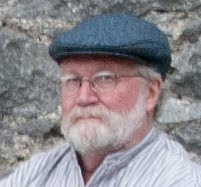But something happened at my job in this past week that I would be derelict in not mentioning. It is not pleasant. It is saddening, and perhaps ultimately demoralizing, but it is significant.
It is the end of a grand, 49-year-old promise to the people of the state of California by their government: that every California resident, regardless of financial status, who could benefit from higher education would be able to enroll in a California college or university that would suit his or her abilities and needs.
In 1960, the state legislature enacted the California Master Plan for Higher Education, a truly revolutionary, integrated strategy for accommodating the anticipated crush of "Baby Boomers" once they reached college age. From my perspective, it was not only a Master Plan, but a masterful one, generally credited in large part to the vision of two people, Edmund G. ("Pat") Brown, then Governor, and Clark Kerr, then President of the University of California system.
The Master Plan was implemented quickly, and has served California superbly for nearly half a century. Its details are succinctly laid out in the Wiki article linked above. And, possibly with isolated exceptions, its promise has been kept: every California resident who could benefit from higher education has been able to enroll in a California University, State College, or Community College.
Until last week.
Above: San Francisco ABC television story from the first day of classes. If you click on this, you'll have to put up with a 15-second advertizement.
The "perfect storm" of denied opportunities elsewhere happened this Fall. California's budget meltdown caused draconian cuts in the UC and CSU systems, slashing enrollments in those two legs of the Master Plan's tripod, which shifted a tidal wave of students to the Community Colleges. That system, however, also had its financial resources gutted, causing massive cutbacks in course offerings, so students by the thousands in the San Francisco Bay Area alone couldn't get all of the courses they needed or wanted at other community colleges.
That left DeAnza, the late-start, huge campus of last resort.
This week was the first week of classes. It was probably one of the worst weeks of our professional careers for those of us who work there; worse than that for the thousands of students who were told "no" one last time, with nowhere else to go.
The promise of the Master Plan was dead. Not officially, of course. Nobody in Sacramento will say that, because nobody in the capitol building had to look hundreds of students in the eye and tell them there was no opportunity for them here or anywhere else. It's not part of official policy that the Master Plan's promise is no longer valid, but, in reality, it's as dead as Caesar.
Numbers from DeAnza's first week of the 2009-10 school year:
Total number of students enrolled in at least one course: More than 25,000
Number of those who could not enroll in as many courses as they wanted/needed: 8,400
(These will not qualify as "full-time" students as a result, and financial aid they receive may be in jeopardy because of their part-time status. Moreover, those who are carried on their parents' health insurance under a "full-time college student" clause will lose that also.)
Number of students who could not enroll in any courses at all: 2,300
Two thousand three hundred students went to the trouble and expense of registering in my college this quarter who were denied any service whatsoever. All they got was a hunting license for a griffin or a chimera. And, if they bought a $70 parking permit, they also got a hunting license for a parking space, only slightly less abundant than griffins.
For those 2,300 students -- who will now not be students at all -- the Master Plan's promise is not only dead, it's a cruel joke. Since I was almost certainly the last one to say "no" to more than a few of them, I was their ultimate agent of the promise's violation. I'm not going to have a wonderful weekend, but it will probably be a better one than theirs will be.
We could see this coming, at least a little bit. During the week before the beginning of classes, during pre-term meetings and planning sessions, my division Dean told us that, even at that time, there was not a single seat available in any science class section, and that only a handful of openings were still available in our very large number of mathematics sections. By the beginning of the week, the total number of student names on waiting lists, campus-wide, was over 14,000 -- and that's just the students who went to the trouble of signing up on a waiting list instead of simply giving up.
And so, since we are the last ones a student sees when he or she still has hope of getting into a class, we teachers became the ones who had to bring the final "no" down: No, you cannot enroll in this class. No, there are no other classes I can suggest. Please try again next quarter.
I'm not anxious right now to try to analyze how we got here, or to cast blame, or to assess whether or not the promise was a good idea to begin with. I'll do all of that -- all of us at DeAnza will do all of that -- once a short period of stunned numbness is over. But right now I'm just overwhelmed by the reality of the violation of an ideal that has guided my entire 36-year career.
We let them down.
================================
Links and statistics courtesy of DeAnza President Brian Murphy.
================================
Links and statistics courtesy of DeAnza President Brian Murphy.
================================



10 comments:
And how many of those lucky enough to be admitted will drop out before Thanksgiving for one reason or another?
Fewer than would have in previous years, Ronnie, I can guarantee you that. Once again I have my ration of 350 students, total, in my sections this term. I have never, ever seen such universal attentiveness in the first week of class as I did last week.
I had a friend who financed his doctorate at the University of Chicago by teaching at Roosevelt College, a nearby community college. He said he really liked it because, while a lot of students at the university were kids there more or less by virtue of inertia, the ones at Roosevelt, often not kids, were very active in having decided to enroll and thus motivated by more than a sense that they were supposed to get a degree. He also said that they brought a variety of experiences to their discussions that often lifted things above the usual level.
But even that was a quarter century ago. We can't keep investing in the future, Sherwood.
It wasn't till our girls were in the NY community college system that i fully came to appreciate the level of education people get in them and what you guys do. My brother is (at last) employed again, and in a community college with a 1-hour commute. I imagine he'll be finding in his students a similar degree of appreciation for their opportunity and of their not taking it much for granted. It, pardon me, sux that at a time when so many really would value an education so highly and make their lives and the nation better with it, systems are cutting back and turning them down. Hoping better times are in the works.
Your statement that "we" let them down seems overly generous toward the people who caused this mess. I suspect you weren't much of a contributor to the mess.
I don't know what to say about any of this anymore: the bleakness is so very real and consequential.
While the particular California situation isn't exactly analogous to what's happening on the East coast, it's the same general implosion. Having taught (part time, untenured, etc., but having gotten some familiarity with the places) at everything from Ivy League and mini-Ivy schools to Community Colleges, the CC's have the place closest to my heart - and CC students rock my world. The hardest workers, the least presumptuous, the most committed.
And always, the first to get screwed.
Out here, what it feels like I'm watching is the full and final corporatization of college, and the extraction of the last drops of education as a social, political, cultural, spiritual value rather than a profit making and profit increasing tool for colleges and students both. The only exception to that ethos: schools for the very rich and very privileged. (And those handful of scholarship students who go there will be looking at a four-year bubble during which they were made to feel optimistic and curious and valued followed by a nasty re-entry into a world which doesn't give a whit about their intellect, ethics, curiosity - and their degree, they will find, is useless in this economy anyway).
The undergraduate education teaching a solid foundation for all graduates in critical thinking, history, culture, arts, sciences, real literacy, skill in writing and rhetoric, and leading toward specialization in whatever field is more and more a figment of imagination.
It's just grim. There's no other word.
Part of me is enormously relieved - for heart-break avoidance - that I haven't been pursuing the tenure track and have instead remained intentionally on the periphery of academia. The other part of me knows that academia is increasingly just like any other industry, so it matters little.
I think there's no avoidance of the heart break, really.
There *may* be enough outrage building to generate some substantive change.
I hope.
I neglected to say the thing which motivated that long comment: I'm really sorry things are such a mess at De Anza, Sherwood.
I'm glad you wrote it, and that your students have someone who cares about their well-being.
To all who teach (or taught) at a community college I wish to thank you. My high school years were not easy for a variety of reasons. I was lucky to even make it to graduation.
After graduation I was confused and had no idea what to do. I decided to enroll in a local community college http://www.mxcc.commnet.edu/ while I figured out what to do with my life.
The professors were phenomenal! I grew so much and was able to build a strong foundation. I eventually graduated and went on to a local university for a BA and eventually an MA.
I can honestly say the best professors were at the community college. The classes were more challenging and stimulating at Middlesex CTC too.
A big THANK YOU to you all. You will never realize how many lives you have touched.
Thank you, Fred. That means more than you can know.
Middlesex CC looks like a lovely place... and I see that they don't offer any Astronomy courses. Hmmm...
solutions?
mass conversion to whatever compels europe to educate its future citizens for free
change the laws so that elected officials--local, state, and national-- are paid according to the number of students in school.
......??????
MxCTC has grown tremendously since I was there. I'm sure they'd be amenable to offering an astronomy course or two, and it is right off CT Rt 9!!!
Post a Comment